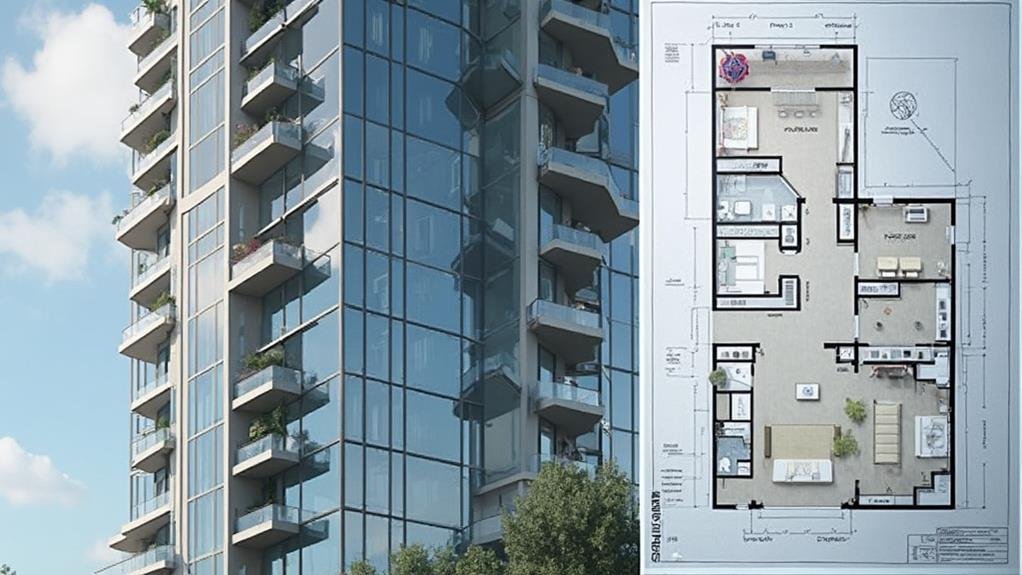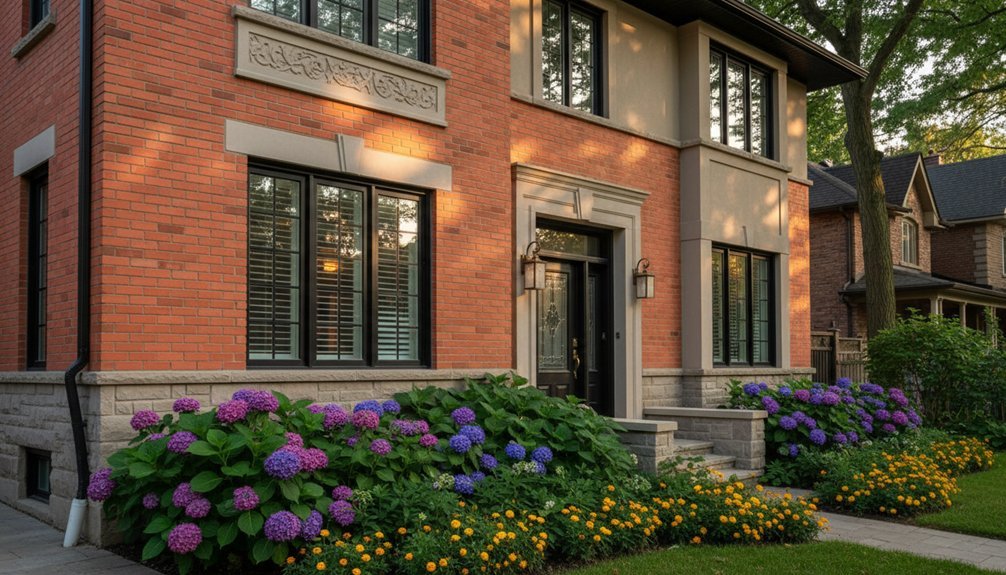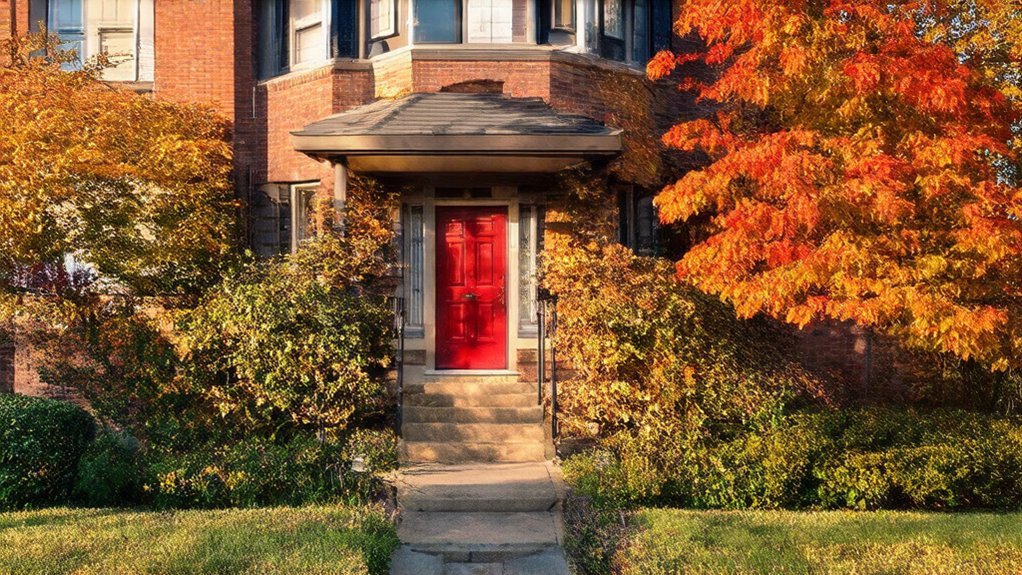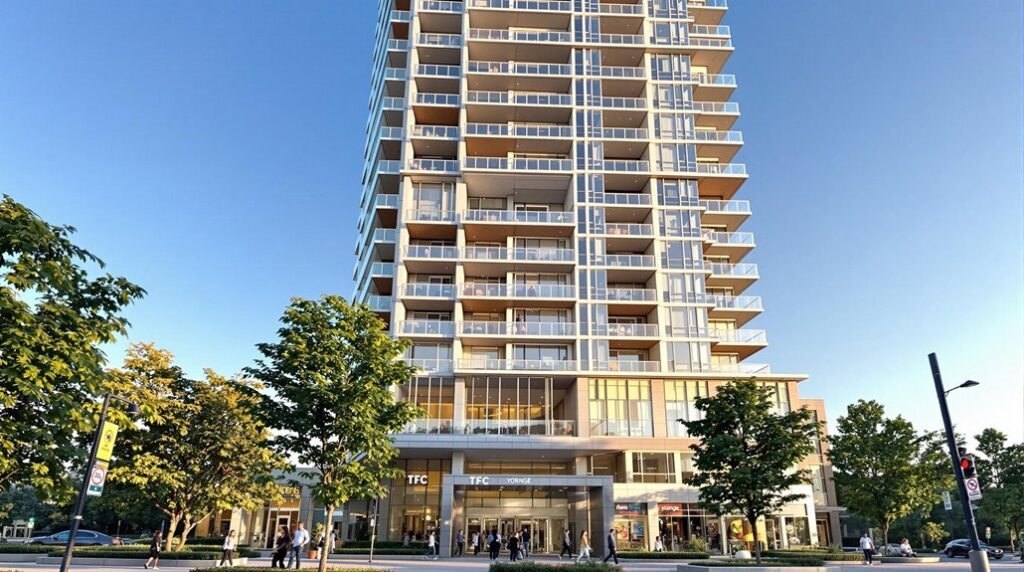You're about to initiate the exciting journey of condo ownership in Toronto, but are you fully prepared for the legal intricacies that come with it? Understanding condominium law and regulations is vital for making an informed decision and avoiding potential pitfalls. From deciphering the Declaration and Bylaws to grasping the nuances of reserve fund management, there's a lot to reflect upon. As you navigate this complex landscape, you'll discover that condo living is more than just owning a unit—it's becoming part of a unique community governed by specific rules and responsibilities. Let's explore what you need to know before taking the plunge.
Key Takeaways
- Understand the unique ownership structure combining private units and shared common elements.
- Familiarize yourself with the Declaration and Bylaws, which outline rights, responsibilities, and community rules.
- Assess the adequacy of the reserve fund to avoid unexpected special assessments.
- Know your maintenance and repair obligations as outlined in the condo documents.
- Be aware of rules regarding modifications and renovations to maintain aesthetic consistency and avoid penalties.
Condo Ownership Structure

Condo ownership involves a unique structure that combines private and shared ownership. It's not your typical "here's a house, enjoy" deal. Oh no, it's far more complicated than that.
You're buying into a community, whether you like it or not. Your unit? That's yours. But everything else? Well, that's where it gets interesting. Hallways, pools, that creepy basement laundry room – you own a piece of all of it. Congratulations, you're now part-owner of a questionably maintained elevator!
Essential amenities like gyms, pools, and entertainment rooms are common features that enhance your living experience, but they come with shared responsibilities.
But wait, there's more! You're not just a homeowner; you're a corporation member. Sounds fancy, right? Wrong. It means you're part of a Condo Corporation, responsible for managing the whole shebang. Think of it like a dysfunctional family reunion, but with more paperwork.
And speaking of paperwork, get ready to familiarize yourself with a whole new language. Declaration, Bylaws, Rules – these aren't just fancy words; they're your new bible. Ignore them at your peril.
Now, let's talk about the fun part – money. Monthly maintenance fees are your new best friend. They'll cover everything from fixing that leaky roof to maintaining the gym equipment nobody uses. How much? Well, that depends on how many unnecessary amenities your condo decided to include.
Oh, and don't forget the Condo Board. These elected officials will make decisions that impact your daily life. It's like high school student council, but with real consequences. Exciting, isn't it?
Welcome to condo ownership. It's not just a home; it's an adventure in shared responsibility and complex legal structures. Enjoy the ride!
Declaration and Bylaws
After signing on the dotted line, you'll quickly discover that condo life comes with its own rulebook – or rather, two rulebooks. Welcome to the world of Declarations and Bylaws, the dynamic duo that'll govern your every move in your new concrete jungle.
First up, the Declaration. It's like the condo's constitution, outlining your rights and responsibilities as a unit owner. Think you can just do whatever you want with your space? Think again. This document spells out what's yours and what's shared. It's the referee in the never-ending game of "mine vs. ours" that defines condo living.
Then there are the Bylaws. These are the nitty-gritty rules that'll make you question why you ever left your parents' basement. From pet policies to parking regulations, these guidelines will shape your daily life. Ignore them at your peril – non-compliance can lead to fines or, worse, that dreaded HOA meeting invitation.
Here's a quick breakdown:
| Document | Purpose | Importance |
|---|---|---|
| Declaration | Defines ownership rights | Critical for legal clarity |
| Bylaws | Outlines community rules | Fundamental for daily living |
| Both | Govern the condo community | Essential for harmonious living |
Before you jump into condo ownership, do yourself a favor and actually read these documents. Yes, all 50 mind-numbing pages. It's not exactly beach reading, but it'll save you from future headaches and potential legal battles. Remember, ignorance isn't bliss in condo world – it's just expensive.
Common Elements and Units

Step out of your unit and into the world of common elements, where the line between "yours" and "ours" blurs faster than your neighbor's questionable paint choices. Welcome to the shared spaces that'll have you wondering if you've accidentally joined a socialist experiment.
Think of common elements as the condo's all-access pass. Hallways, pools, gardens – they're all yours, sort of. You've got a slice of ownership pie, but so does everyone else. It's like owning a piece of a very expensive, very complicated jigsaw puzzle. At Skymark Condominiums, these shared spaces include a fully-equipped gym, swimming pool, and tennis court, offering residents a slice of luxury living.
Now, here's the kicker: you're paying for all this shared splendor. Monthly condo fees? They're not just disappearing into thin air. They're keeping those common areas spick and span. But don't get too excited – the amount you'll shell out can vary wildly. One building's paradise is another's money pit.
Who's calling the shots on these shared spaces? Enter the condo corporation, the puppet master pulling the strings. They're the ones deciding if that lobby needs a facelift or if the pool's getting a new diving board. And guess what? You're part of this circus. Got opinions? Air 'em out at community meetings. It's your chance to be heard before that hideous sculpture ends up in the courtyard.
But here's the real head-scratcher: where does your unit end and common elements begin? It's all in the declaration, that thrilling document you probably skimmed.
Board of Directors' Responsibilities
Five suited figures sit around a mahogany table, wielding more power than you'd think possible in a building full of overpriced shoeboxes. Welcome to the world of condo Board of Directors. These folks aren't just there to look important; they've got a laundry list of responsibilities that'll make your head spin.
First up, they're the big bosses of your condo corporation. Think of them as the CEOs of your concrete jungle. They're in charge of making sure everyone plays by the rules – you know, those pesky documents you probably skimmed over when you bought your unit. They're also responsible for lease management, ensuring all agreements are legally compliant and up-to-date.
Money matters? That's their jam too. They're juggling your monthly fees like a circus act, trying to keep the lights on and the elevators running. And don't forget about that mysterious "reserve fund" – it's like a piggy bank for when the building inevitably starts falling apart.
But wait, there's more! These suit-wearing superheroes are also responsible for keeping your shared spaces in tip-top shape. Leaky roof? Crumbling facade? They're on it – or at least they should be.
Here's the kicker: they're supposed to be looking out for you. Yep, you read that right. They've got a fancy legal duty to act in your best interests. Sounds great in theory, but we all know how that can play out in reality.
Communication is key, they say. So when your neighbor's dog won't stop barking at 3 AM, guess who's supposed to step in? That's right, your trusty Board of Directors. They're the middlemen between you and that elusive management company.
Reserve Fund Management

Behind every well-maintained condo building lurks a not-so-secret weapon: the reserve fund. It's the financial backbone that keeps your building from crumbling around you. But here's the kicker: not all reserve funds are created equal.
You'd think condo boards would prioritize this vital safety net, right? Wrong. Too often, they treat it like a pesky afterthought. Sure, Ontario law mandates a minimum 10% allocation from the annual budget, but let's be real – is that enough to keep your home from turning into a money pit?
Here's the deal: a robust reserve fund is your shield against those dreaded special assessments. You know, those surprise bills that make you question why you ever bought a condo in the first place. But how do you know if your building's piggy bank is up to snuff?
Enter the reserve fund study. It's like a crystal ball for your condo's future expenses. Smart buyers plunge into this document like it's the latest bestseller. Why? Because it's the difference between smooth sailing and financial shipwreck.
But don't worry, you're not alone in this financial detective work. Real estate lawyers are your sidekicks in decoding the reserve fund mystery. They'll help you spot those red flags faster than you can say "special assessment."
Listen, buying a condo isn't just about granite countertops and fancy lobbies. It's about ensuring your investment doesn't turn into a financial nightmare. So, before you sign on that dotted line, make sure you've got the lowdown on that all-important reserve fund. Your future self will thank you.
Special Assessments
Fear strikes the heart of every condo owner when they hear two words: special assessment. It's the financial equivalent of a surprise root canal – painful, expensive, and seemingly unavoidable.
Let's face it: special assessments are the bane of condo living. They're those pesky extra fees that pop up when your building's reserve fund can't cover a major repair or improvement. Think of it as your condo's way of saying, "Oops, we didn't save enough!"
The kicker? The amount you'll pay can vary wildly. It's like a twisted lottery where everyone loses. Your share depends on the project's cost and the number of units in your building. Suddenly, that leaky roof becomes your problem too.
Now, you're probably thinking, "Can't they warn us?" Well, they're supposed to. You'll typically get a heads-up before the assessment hits. Sometimes, you even get to vote on it. Isn't democracy grand?
But here's the rub: if you don't pay, you're in for a world of hurt. We're talking penalties, interest charges, and potential legal action. They might even slap a lien on your unit. Talk about a financial hangover!
Maintenance and Repair Obligations

While special assessments can catch you off guard, understanding your maintenance and repair obligations can help you avoid unwelcome surprises.
Let's face it, condo living isn't all glamour and convenience. You've got responsibilities, and they're not always fun.
First things first: know your turf. As a condo owner, you're the boss of your unit. That fancy new fridge? Your problem. Leaky faucet? That's on you, too.
But don't worry, you won't have to climb onto the roof to fix a leak or repaint the lobby. The condo corporation's got your back for common areas.
Now, here's where it gets tricky. Every condo has its own rulebook – the declaration and bylaws. These aren't just boring legal documents; they're your lifeline. They spell out who's responsible for what. Read them. Seriously. It's like a prenup for your condo relationship.
You might be thinking, "Why should I care about the roof? I live on the second floor!" Well, surprise! You're paying for it. Those monthly fees you shell out? Part of that goes into a reserve fund for big repairs. It's like a forced savings account for your building's future. Not fun, but necessary.
Here's a pro tip: before you start any repairs, check the rules. Some condos are pickier than others. You might need to get permission before you even change a light bulb. Okay, that's an exaggeration, but you get the point.
Disputes happen. It's like living with roommates, but with more paperwork. When in doubt, refer to those governing documents. They're your best defense against condo drama.
Insurance Requirements
When it comes to insurance requirements, you're not just protecting your stuff – you're safeguarding your financial future.
Let's face it: insurance isn't exactly thrilling, but it's essential when you're diving into the world of condo ownership.
Here's the deal: condo corporations are required to have insurance for common elements. Sounds great, right? Well, don't get too excited. That policy doesn't cover your personal belongings or any fancy upgrades you've made to your unit. Shocker, I know.
So, what does this mean for you? You've got to get your own insurance policy. It's like buying a car without wheels – the condo corporation's insurance is incomplete without your personal coverage.
But wait, there's more! Before you sign on the dotted line, you need to review the condo corporation's insurance policy. Why? Because you need to understand what's covered and what's not. Trust me, you don't want any nasty surprises down the road.
Feeling overwhelmed? You're not alone. This is where legal counsel comes in handy. They can help you navigate the murky waters of insurance obligations and make sure you're not caught with your pants down.
Look, I get it. Insurance isn't sexy. But it's the safety net that keeps you from financial disaster.
Think of it as the superhero cape for your condo – it mightn't be visible, but it's there when you need it most.
Dispute Resolution Mechanisms

Living in a condo community can sometimes feel like maneuvering through a minefield of potential conflicts. You're sharing walls, amenities, and common spaces with strangers. What could possibly go wrong?
Well, plenty. But don't panic just yet. There are ways to navigate these treacherous waters without losing your mind or your home.
First things first: communication is key. Got a beef with your neighbor's late-night drum solos? Start by talking to the condo board. They're not mind readers, folks. And let's face it, they'd probably rather hear about it from you than through the grapevine.
The Condo Authority isn't just there to look pretty. They've got resources and guidelines to help you sort out your squabbles. But here's the kicker: you've got to follow the rules. Yeah, those pesky bylaws you probably skimmed over when you moved in. Time to dust them off and give them a proper read.
Mediation: it's not just for divorcing couples anymore. Before you go nuclear and drag everyone to court, try sitting down with a neutral third party. Who knows? You might actually find a solution that doesn't involve restraining orders.
If all else fails, there's always the Condominium Management Regulatory Authority of Ontario or the courts. But let's be real, do you really want to spend your weekends in a courtroom?
Here's a crazy idea: familiarize yourself with your condo's governing documents. I know, I know, it's not exactly beach reading. But trust me, it's better than being caught with your pants down when a dispute arises.
Modifications and Renovations Rules
So, you're itching to knock down that wall or install a hot tub on your balcony? Hold your horses, cowboy. Welcome to the labyrinth of condo modifications and renovations rules. It's like trying to redecorate your room as a teenager, but with a whole committee of parents breathing down your neck.
First things first: that declaration, those bylaws, and those pesky rules? They're your new bible. Every change you dream up needs to fit into their rigid framework. It's enough to make you want to scream into a pillow.
Got a brilliant idea? Great. Now, prepare to jump through hoops. You'll need to submit a formal request to the condo board or management. Plans, specifications, the works. It's like applying for a job, but instead of getting paid, you're paying for the privilege of changing your own space.
Think you can just sneak in a major alteration? Think again. Anything that messes with the building's structure or common elements is under the microscope. Plumbing, electrical – you name it, they'll want to know about it.
And don't forget about your neighbors. The condo corporation might slap you with conditions to keep the peace and maintain that oh-so-important "aesthetic consistency." Heaven forbid your creativity disrupts the beige monotony.
Ignore these rules at your peril. Penalties await the rebels. You might find yourself ripping out that dream kitchen or writing checks for fines. Is it worth the hassle? Sometimes. But be prepared for a bureaucratic obstacle course that would make Kafka proud.
Conclusion
Let's face it, condo buying's no walk in the park. You've got to navigate a maze of laws, regulations, and paperwork. It's enough to make your head spin! But don't throw in the towel just yet. Armed with this guide, you're better equipped to tackle the condo market. Remember, knowledge is power. So plunge in, ask questions, and don't let the jargon intimidate you. Your dream condo's waiting – go get it!


















